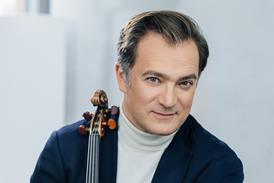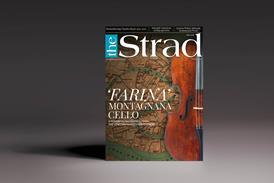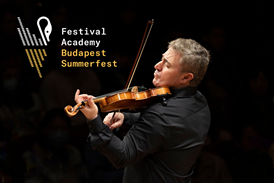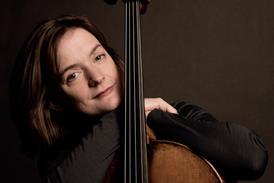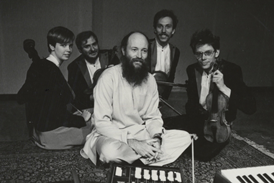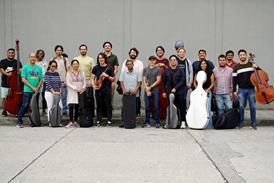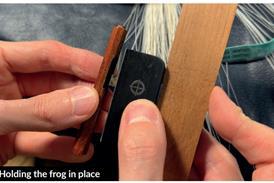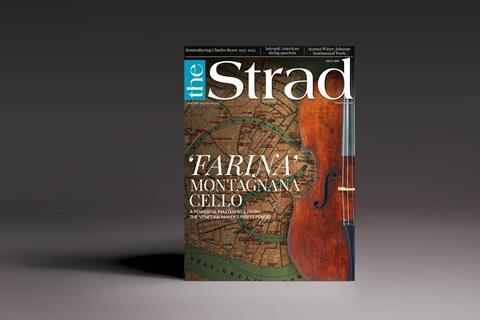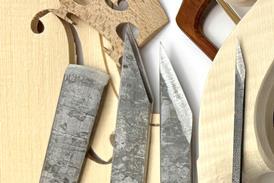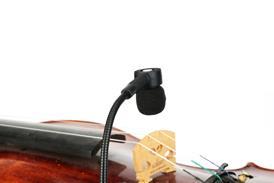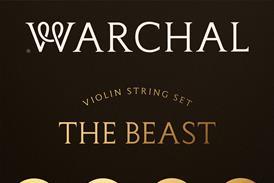All Rachel Barton Pine articles
-
 Review
ReviewThe Strad Recommends: Rachel Barton Pine: Corelli
A chameleonic violinist inspires in the Italian Baroque
-
 Article
ArticleViolinist Rachel Barton Pine — an exclusive interview from The Strad’s archive, November 2008
Ahead of her solo London debut in 2008, the American violinist tells Michael Quinn how she has forged her successful solo career despite early setbacks
-
 Premium ❘ Feature
Premium ❘ FeatureRachel Barton Pine: ‘What we’re doing today is the history of tomorrow’
As she turns 50, the American violinist Rachel Barton Pine speaks to Ariane Todes about her unwavering enthusiasm for discovering, and communicating, the artistic integrity in everything she does
-
 Premium ❘ Article
Premium ❘ ArticleNovember 2024: Editor’s welcome and contents
The Strad’s editor Emma Baker introduces the US-themed November 2024 issue, which features US violinist Rachel Barton Pine, string players in the US military, luthier Nicola Giorgis and his daughter Francesca Maria and the centenary of Leonid Kogan
-
 News
NewsRachel Barton Pine plays sonatas of Arcangelo Corelli
Rachel Barton Pine’s new album of Arcangelo Corelli’s Op. 5 violin sonatas, on which she is joined by period-instrument specialists David Schrader (keyboards), John Mark Rozendaal (cello) and Brandon Acker (guitar), reflects the experimental spirit of Corelli’s original scores.
-
 Premium ❘ Feature
Premium ❘ FeatureBaby on board: string soloists share their parenting stories
A life of performing, touring and rehearsing might seem impossible with a young child in tow – so how do so many soloists manage it? Catherine Nelson finds out, in this article from our May 2012 issue
-
 Focus
FocusMy violin heroine Maud Powell, by Rachel Barton Pine
Violinist Rachel Barton Pine examines why Powell's pioneering contribution to the art of violin recording so richly deserved the Lifetime Achievement Award at the 56th Grammy Awards in 2014
-
 Review
ReviewRachel Barton Pine: Dependent Arising
A Russian concerto meets thrash metal and comes out on top
-
 Premium ❘ Feature
Premium ❘ FeatureMasterclass: Rachel Barton Pine on Mendelssohn Violin Concerto
In our April 2017 Masterclass feature, US violinist Rachel Barton Pine shows why the first movement is not as easy as often assumed
-
 Focus
FocusRachel Barton Pine and her daughter share two pieces from ‘Music by Black Composers’
A throwback performance of the duo from 2020
-
 Premium ❘ Feature
Premium ❘ FeatureSession Report: Recording Florence Price’s Second Violin Concerto
Violinist Rachel Barton Pine and conductor Jonathon Heyward speak to Harry White about recording Florence Price’s lost-and-found late work, the Second Violin Concerto
-
 Blogs
BlogsDiscovering music by Black composers: Rachel Barton Pine
The violinist recalls her journey exploring works by overlooked composers and how embracing diverse voices promises enriching experiences
-
 Review
ReviewLive-streamed concert review: Rachel Barton Pine (violin) Matthew Hagle (piano)
Charlotte Gardner views the performance on 14 December 2021, beamed live from Pine’s apartment
-
 Video
VideoAll that jazz: Violinist Rachel Barton Pine
The champion of music by Black composers performs works by Billy Childs, Dolores White and Coleridge-Taylor Perkinson
-
 Focus
FocusThe Strad Podcast Episode #32: Rachel Barton Pine and Billy Childs on a new violin concerto
’If our violin concertos were only written by violinists, we’d get things that were very idiomatic, but perhaps never transcending that. It broadens our perspective’
-
 News
NewsViolinist Rachel Barton Pine to perform seated for the foreseeable future
Pine, who suffered injuries to her lower limbs in 1995, was advised by her medical team that she will be non-ambulatory over the next few years.
-
 Review
ReviewRachel Barton Pine: Dvořák and Khachaturian
Atmospheric, subtly thought-out playing touching on the mystical
-
 Blogs
BlogsRachel Barton Pine: 10 tips for practice and performance
The Strad attended a masterclass with the American violinist in 2015 and took down these practical pointers
-
 Review
ReviewBlues Dialogues: Rachel Barton Pine, Matthew Hagle
Concentrating on pieces influenced by the blues, this CD is part of a long-running project to research music written by black composers.
-
 Focus
FocusBach: Six Sonatas and Partitas for Violin Alone
Rachel Barton Pine’s new edition of the scores for these staples of the violin repertoire is meticulous, generous and stimulating

